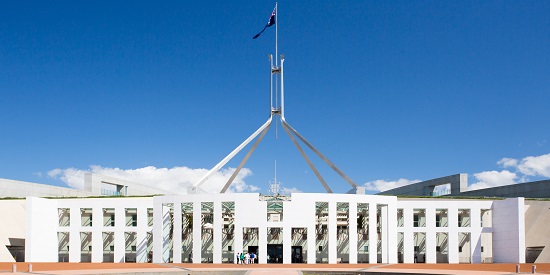New study finds billions of Australian taxpayer dollars have been taken for granted
Media release
A new study from the IPA-Deakin SME Research Centre found that the overwhelming majority of Commonwealth Government grants awarded to businesses between 2018-2022 were non-competitive, and that only 17% of the $3 billion in business grants awarded over the five-year period were competitive.
IPA-Deakin SME Research Centre Director, and Deakin University Professor of Accounting, George Tanewski said that inherent problems in the system were previously identified in a 2021 Australian National Audit Office review, and that the findings in the new Commonwealth Government Grants: 2018-2022 study should cause concern for how the government promotes competitive merit-based grants.
'Integrity, transparency, and accountability are three of the largest pillars that support public trust in government. Tracking how Australian taxpayer money is actually spent is more important than ever because every dollar counts right now, and this study is the first in a series of papers that will help show where the money is going,' Professor Tanewski said.
The new study is the first chapter in a three-part series that is designed to promote transparency around Commonwealth Government grant selection criteria, the allocation processes used, the key stakeholders involved, and the public value the system creates for the Australian people.
'These reports raise serious questions about the integrity, transparency, and accountability of a Commonwealth Government system that hands out billions of taxpayer dollars to companies, with virtually no strings attached,' Professor Tanewski said.
Key findings – Commonwealth Government Grants: 2018 to 2022
Academics from the IPA-Deakin SME Research Centre examined data from the Australian Government GrantConnect website to analyse how taxpayer money is being used by the government to support businesses.
Their research found that:
- 83.77% of business grants were awarded through a demand-driven basis to applicants that met the stated eligibility criteria up to the limit of available funding, without any assessment of their merits relative to other applicants, or their reciprocal obligation to taxpayers.
- Competitive selection processes were rare for all business grant categories, but especially rare for business development grants, small business grants, and industry innovation grants.
- Small business grants awarded through an ad hoc basis (ministerial discretion) were closed, non-competitive, and had higher average values than grants that used the Commonwealth Grants Rules and Guidelines application process.
- $540 million of ad hoc grants were awarded 313 times by government ministers with almost no public scrutiny or oversight.
Institute of Public Accountants Group CEO Professor Andrew Conway (Hon) said Australians have a right to know how the government spends their money, and that more transparency is needed to improve the outcomes for taxpayer funded grant programs.
'Accountants have a duty of care to represent their client's best interests, and as a professional body we have a duty of care to represent the public interest,' Conway said.
'Public trust in our institutions is decreasing, and we need to change, and we need to change for the better. It's absolutely critical that governments use the best accounting practices for business grants to promote transparency, and accountants have an important role to play in ensuring taxpayer money is being used appropriately.
'It's been more than two years since the ANAO review, and our research has revealed that the vast majority of this multi-billion-dollar public expenditure pipeline remains shielded from public scrutiny - without fair and competitive selection processes for grant applicants that actually support the small business community.
'These issues raise questions about the integrity of a system that has already been tarnished by high-profile political controversies - including the so-called 'sports rorts' affair, Safer Communities Fund and the Commuter Car Park Project - and leaves the system potentially open to further abuse of public money.
'We know how to fix these problems, and the four recommendations outlined in this white paper will help the Commonwealth Government fulfill its responsibility to the Australian taxpayers.'
Report recommendations
The four key recommendations for improving business grant transparency, competitiveness, and integrity are:
- Publish the names of all applicants for competitive grants, both successful and unsuccessful.
- Require full public disclosures when government ministers overrule public service/expert committee recommendations to award grants.
- Strengthen disclosure requirements for ad hoc grants awarded by government ministers.
- Require government agencies to publish more information about the grants they provide and their intended outcomes.
For a full copy of the research whitepaper, visit the IPA-Deakin SME Research Centre website.

